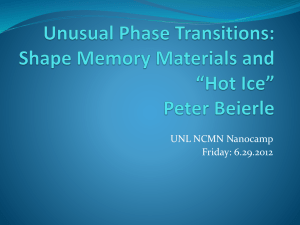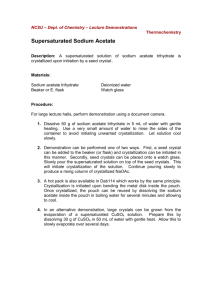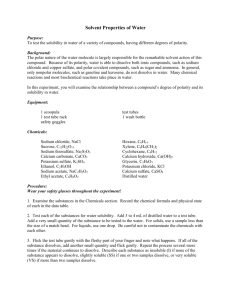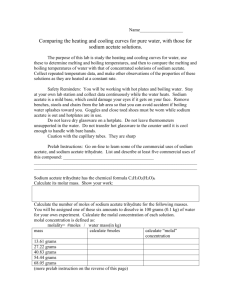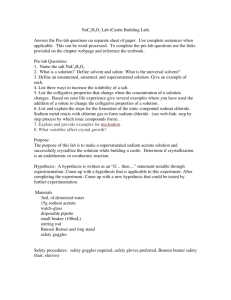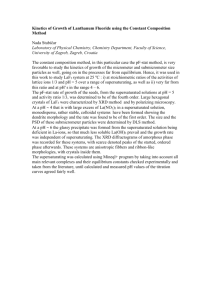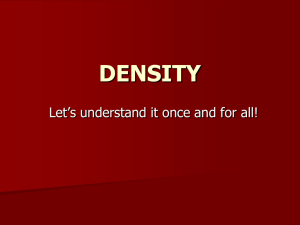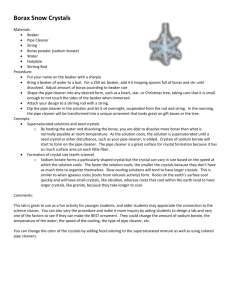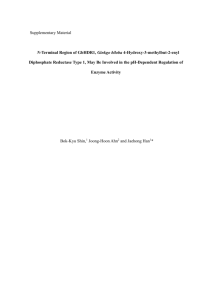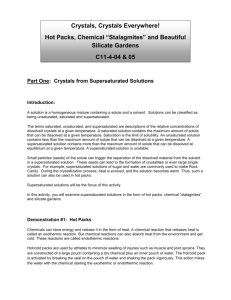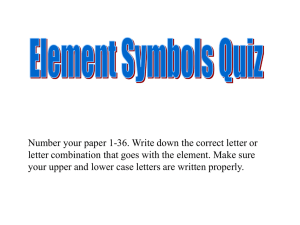SuperSaturated and Saturated Solutions
advertisement
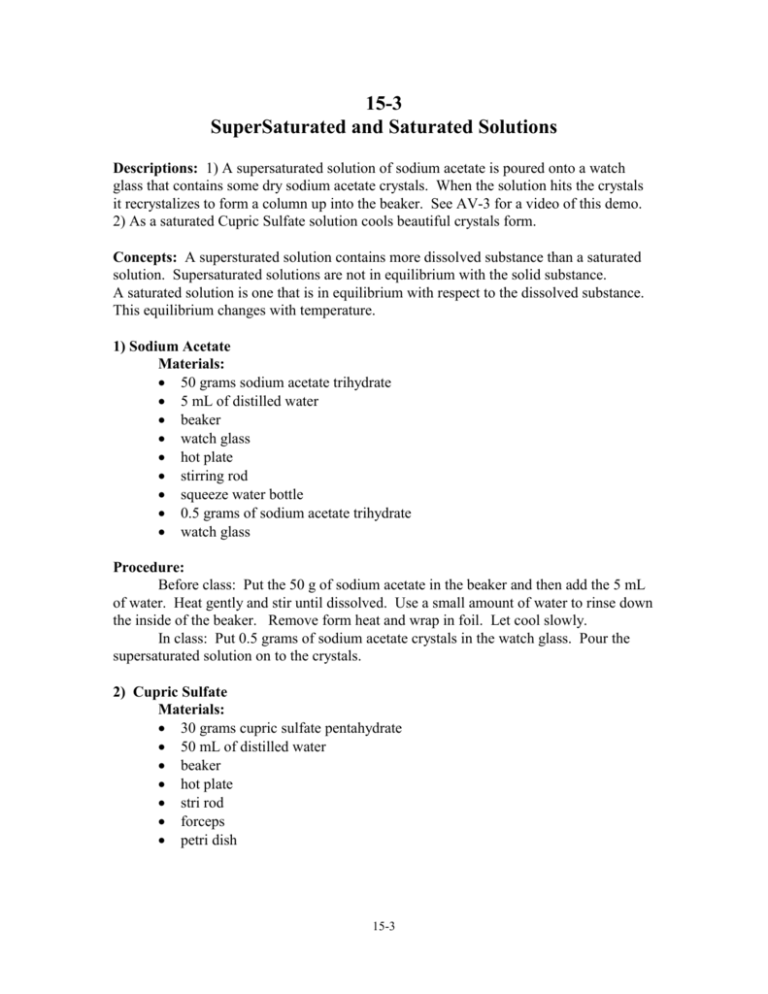
15-3 SuperSaturated and Saturated Solutions Descriptions: 1) A supersaturated solution of sodium acetate is poured onto a watch glass that contains some dry sodium acetate crystals. When the solution hits the crystals it recrystalizes to form a column up into the beaker. See AV-3 for a video of this demo. 2) As a saturated Cupric Sulfate solution cools beautiful crystals form. Concepts: A supersturated solution contains more dissolved substance than a saturated solution. Supersaturated solutions are not in equilibrium with the solid substance. A saturated solution is one that is in equilibrium with respect to the dissolved substance. This equilibrium changes with temperature. 1) Sodium Acetate Materials: 50 grams sodium acetate trihydrate 5 mL of distilled water beaker watch glass hot plate stirring rod squeeze water bottle 0.5 grams of sodium acetate trihydrate watch glass Procedure: Before class: Put the 50 g of sodium acetate in the beaker and then add the 5 mL of water. Heat gently and stir until dissolved. Use a small amount of water to rinse down the inside of the beaker. Remove form heat and wrap in foil. Let cool slowly. In class: Put 0.5 grams of sodium acetate crystals in the watch glass. Pour the supersaturated solution on to the crystals. 2) Cupric Sulfate Materials: 30 grams cupric sulfate pentahydrate 50 mL of distilled water beaker hot plate stri rod forceps petri dish 15-3 Procedure: Gently heat and stir to dissolve the 30 g of cupric sulfate in the 50 mL of water. Remove from heat and let sit to cool. Crystals should start to form. Let sit over a couple of days. There should be some very beautiful and large crystals. Remove the crystals and display on petri dish. Notes: The sodium acetate is a bit tricky. If the solution is too warm the crystalization will not be as spectacular. If the solution cools too much it may recrystalize on its own from a crystal left on the side of the beaker. Ulli Werner-Zwanziger helped to develop the copper demo and used it in the F '94 in her C101 class. 15-3
